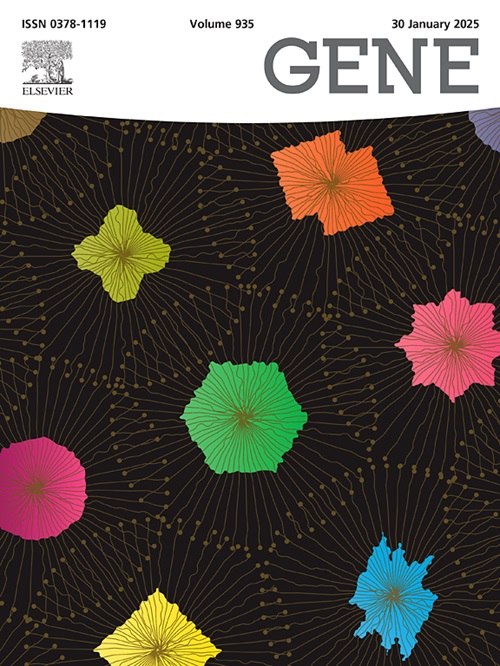Gardner syndrome in a Tunisian family: Identification of a rare APC mutation through targeted NGS
IF 2.6
3区 生物学
Q2 GENETICS & HEREDITY
引用次数: 0
Abstract
Gardner syndrome (GS) is a subtype of familial adenomatous polyposis (FAP) characterized by colorectal polyps, multiple osteomas, soft tissue tumors, and specific oral manifestations, such as jaw osteomas. GS is caused by mutations in the APC gene, resulting in a nonfunctional protein. This study reports a comprehensive clinical evaluation and genetic analysis of a Tunisian family affected by GS. Targeted exome sequencing and Sanger sequencing techniques were employed to identify and validate mutations in the APC gene. Clinical observations of the patient revealed multiple sebaceous cysts, frontal and maxillary osteomas, and several gastrointestinal polyps. Genetic analysis revealed a pathogenic variant (c.4652-4655del) in the APC gene, leading to a truncated protein. Additionally, genetic testing of the patient’s child indicated that the child does not carry the APC pathogenic variant.
In conclusion, our study highlights the importance of genetic testing in raising awareness of GS among clinicians to ensure early diagnosis and effective management, thereby reducing the risk of development and progression of colorectal cancer.
一个突尼斯家庭的加德纳综合征:通过靶向 NGS 鉴定出罕见的 APC 突变。
加德纳综合征(GS)是家族性腺瘤性息肉病(FAP)的一种亚型,以结直肠息肉、多发性骨瘤、软组织肿瘤和特殊口腔表现(如颌骨骨瘤)为特征。GS是由APC基因突变导致的无功能蛋白引起的。本研究报告了一个突尼斯GS家族的综合临床评估和遗传分析。该研究采用了靶向外显子组测序和桑格测序技术来鉴定和验证 APC 基因的突变。对患者的临床观察发现了多发性皮脂腺囊肿、额骨和上颌骨骨瘤以及数个胃肠道息肉。基因分析显示,APC 基因存在致病变异(c.4652-4655del),导致蛋白截短。此外,对患者子女的基因检测表明,其子女并不携带 APC 致病变体。总之,我们的研究强调了基因检测在提高临床医生对 GS 的认识方面的重要性,以确保早期诊断和有效管理,从而降低结直肠癌发展和恶化的风险。
本文章由计算机程序翻译,如有差异,请以英文原文为准。
求助全文
约1分钟内获得全文
求助全文
来源期刊

Gene
生物-遗传学
CiteScore
6.10
自引率
2.90%
发文量
718
审稿时长
42 days
期刊介绍:
Gene publishes papers that focus on the regulation, expression, function and evolution of genes in all biological contexts, including all prokaryotic and eukaryotic organisms, as well as viruses.
 求助内容:
求助内容: 应助结果提醒方式:
应助结果提醒方式:


